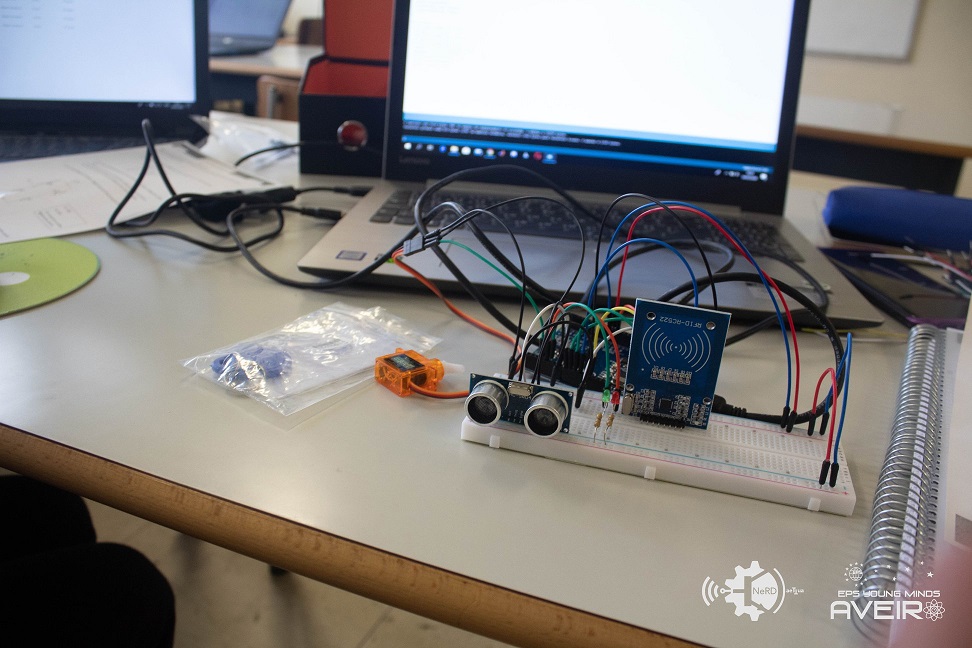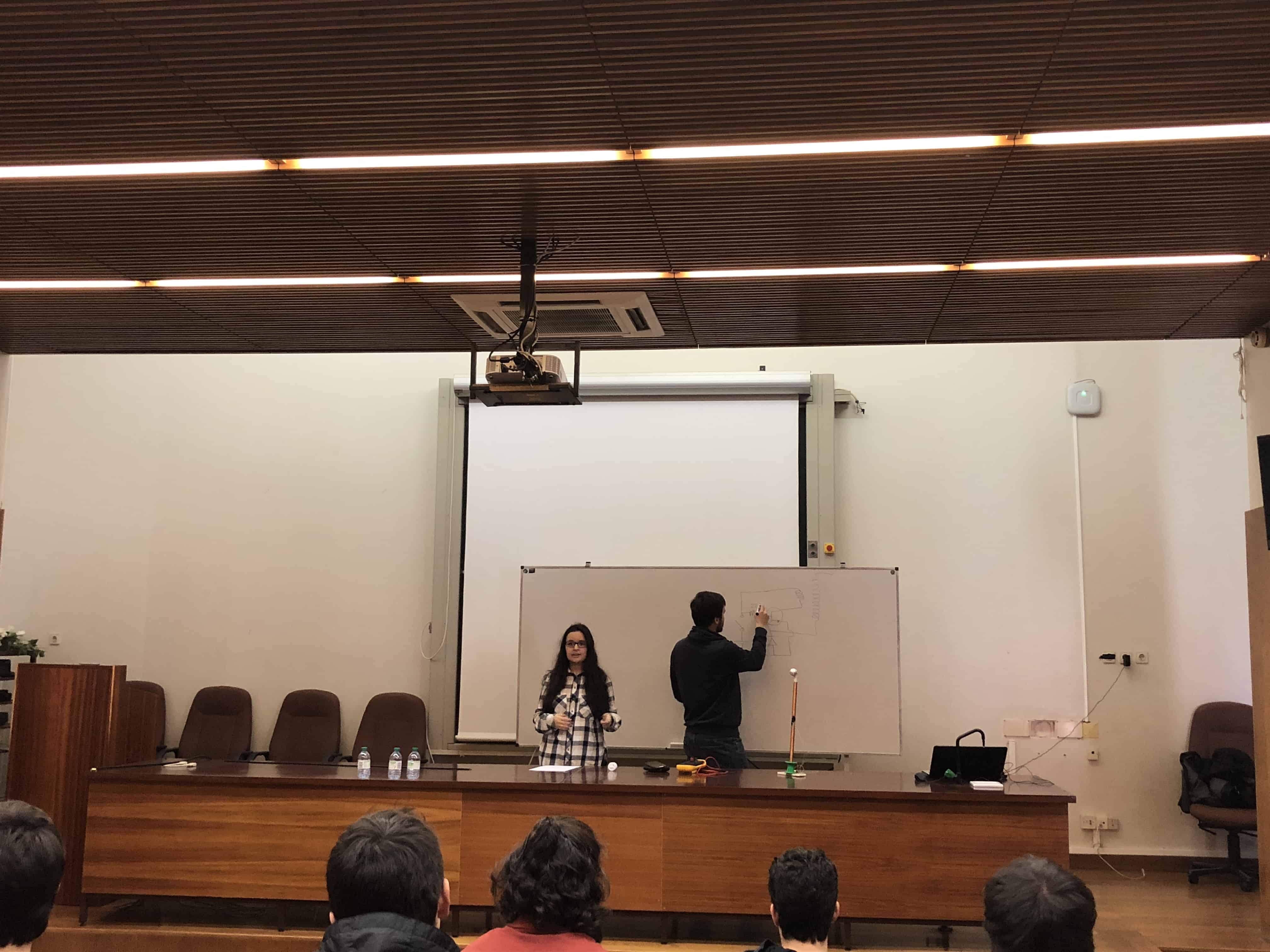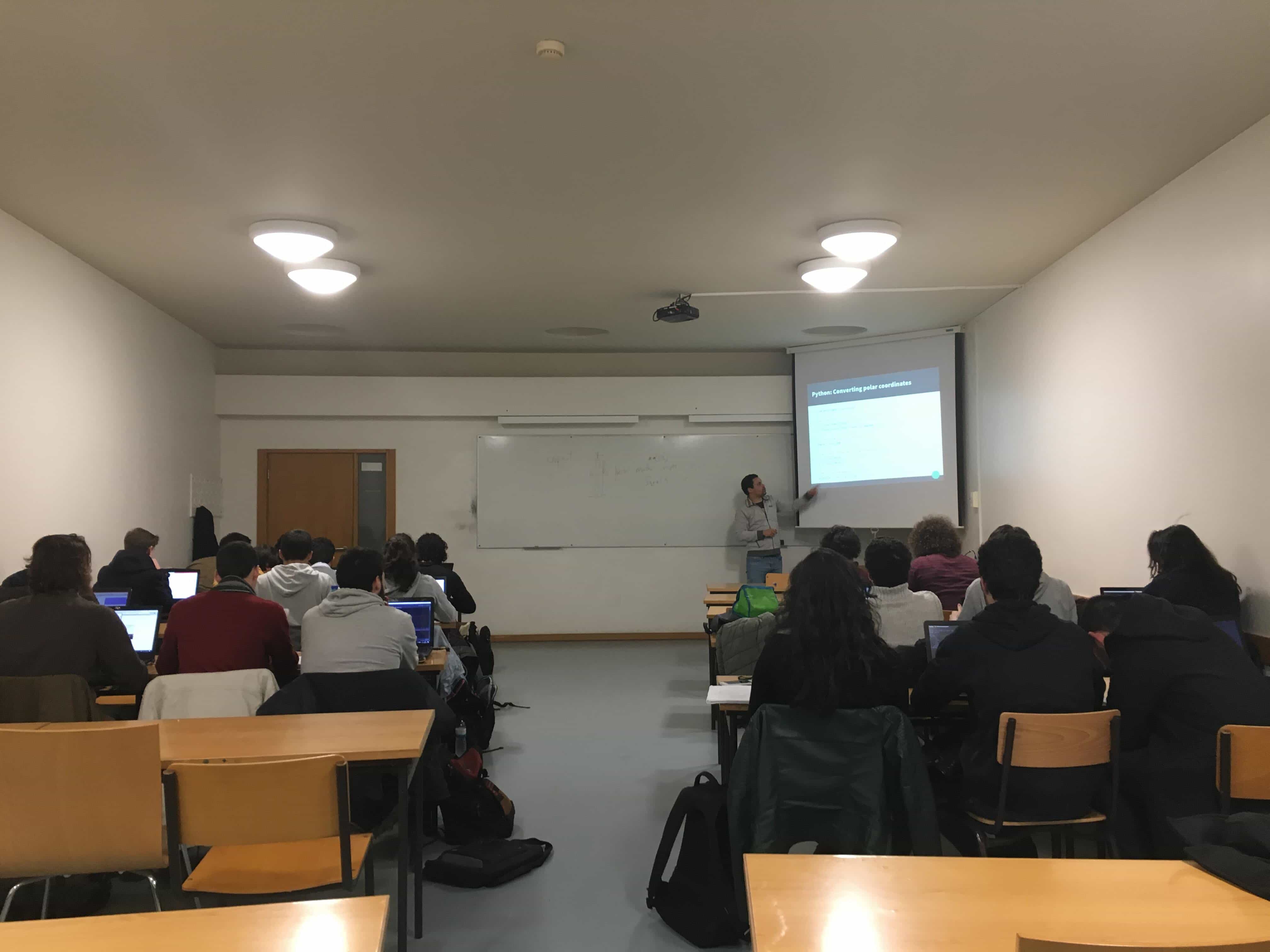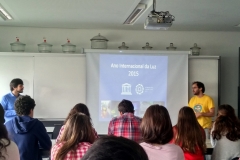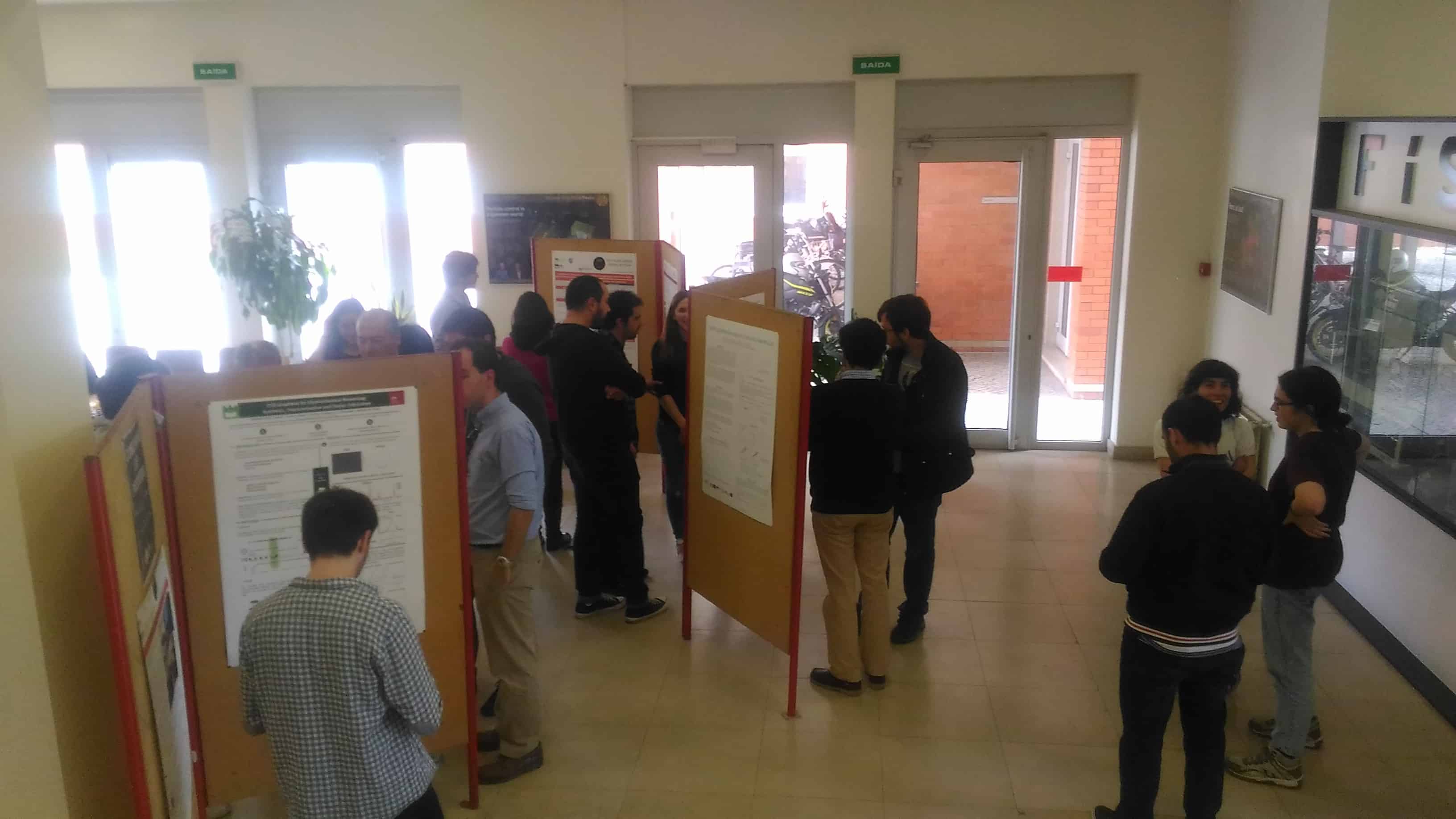
At the end of the academic second semester, a poster contest was made in our department. The timing of this activity was well thought since the presentation of the bachelor projects and master thesis was just around the corner. This would promote an interest in the ongoing projects of the students. The main objective of this contest is the improvement of the writing and oral capabilities of the students, which will be shown important in future conferences that they might participate. Being this said, the activity was conducted for students participating in bachelor or master courses, being extended to students attending the 1st year doctoral program.
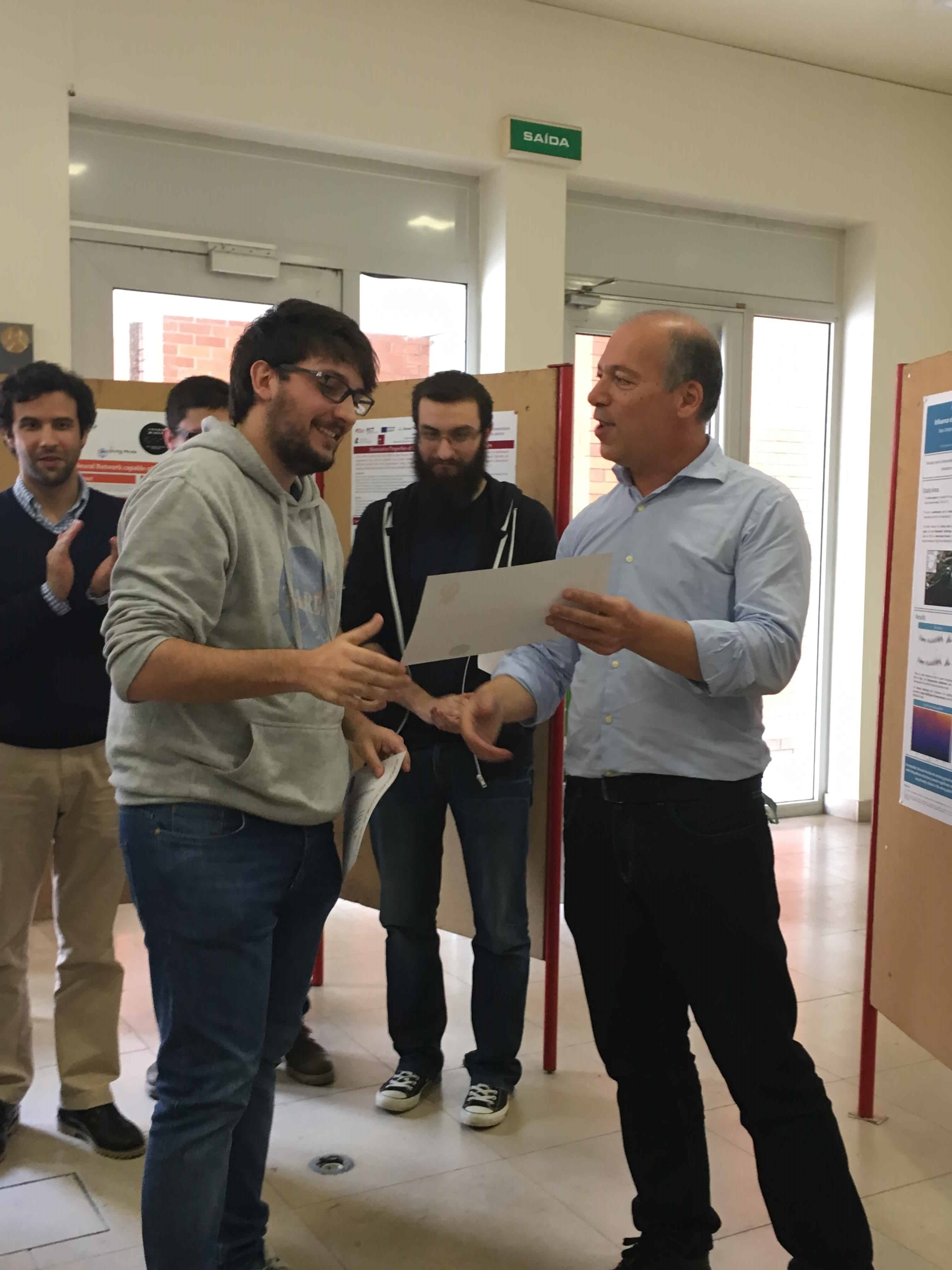
In a first phase was asked for a small abstract of the presented project, and later the poster version. These were printed by our section and, later, delivered to the students. If the number of abstracts shown itself relatively high for our budget a selection of the best abstracts would be performed. We were granted with 10 posters, where only one was from a student doing the bachelor project at the same time. Most of the other posters were from master thesis, bachelor projects or individual work for a course. These covered different areas, since applied physics, theoretical physics and oceanography. Being the later the less abundant, with only one poster. We were still, very praised with the number of interested students.
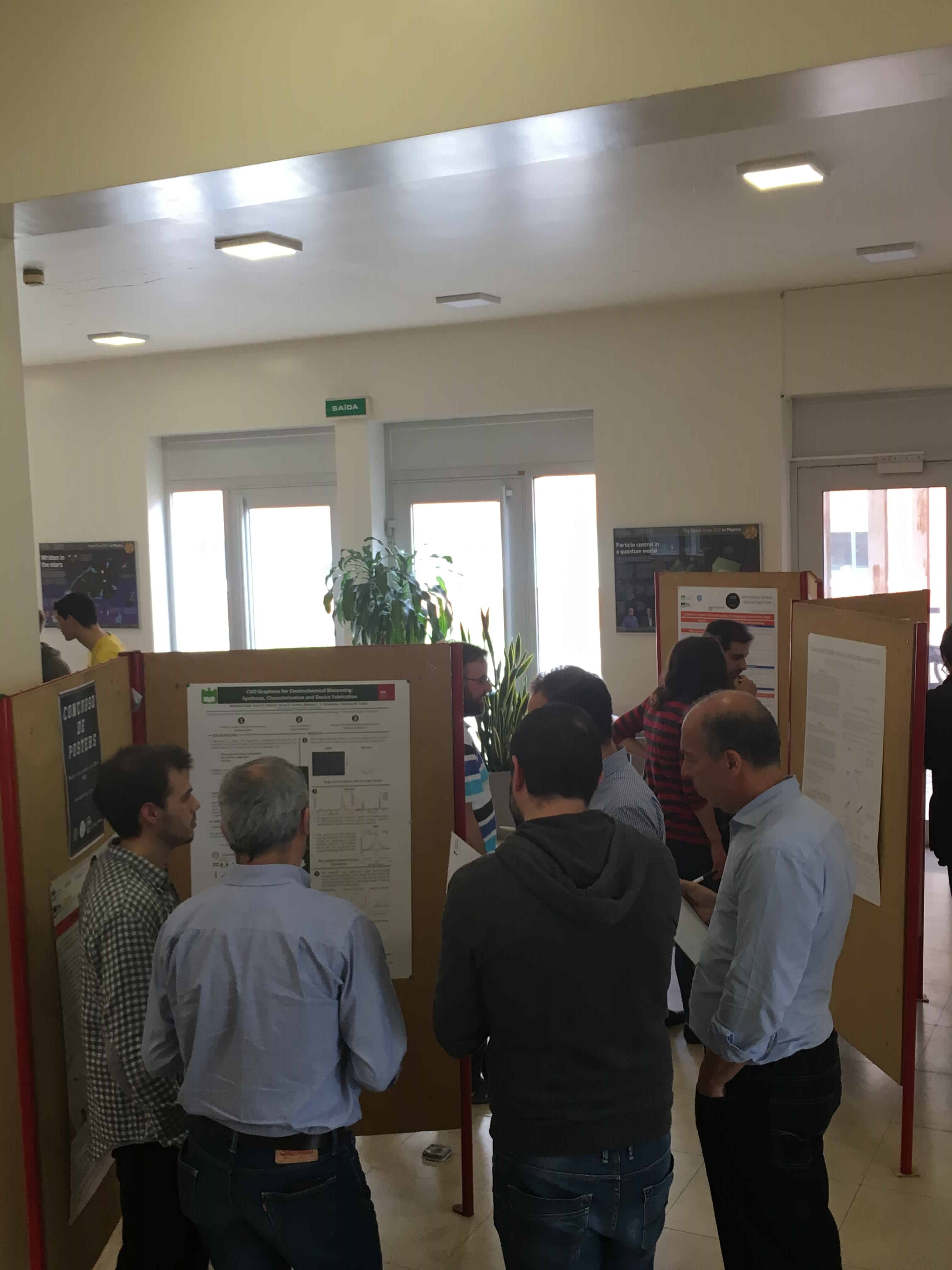
The jury panel was composed of researchers from different fields of study, since applied physics to theoretical physics, is in accordance with the expected submitted posters. It was decided that the judges should select the criteria for the nomination of the three best posters. The scheme of the presentation was also decided by the judges, were the contestants should present their work in 3 minutes, followed by some questions from the judges. The presentation was realized on the 6th of June. These were placed in the atrium of the physics department, this way every person that would enter the place would see them. This attracted a lot of attention, due to the quality of the poster itself and due to the place where they were posted. The placement was made one day before the presentations so that the number of interested people would increase.
This attracted a really good audience, since students to professors, on the day of the presentation. After the presentation a coffee break was realized for all the people involved in this activity. The three best prizes were from Physical Engineering students. The first prize winner was given to Nuno Caçoilo, a student from the 1st year of the master degree, with its bachelor project, under the title Tuning the magnetic anisotropy in perpendicular magnetic tunnel junctions (pMTJ) by means of ion irradiation.
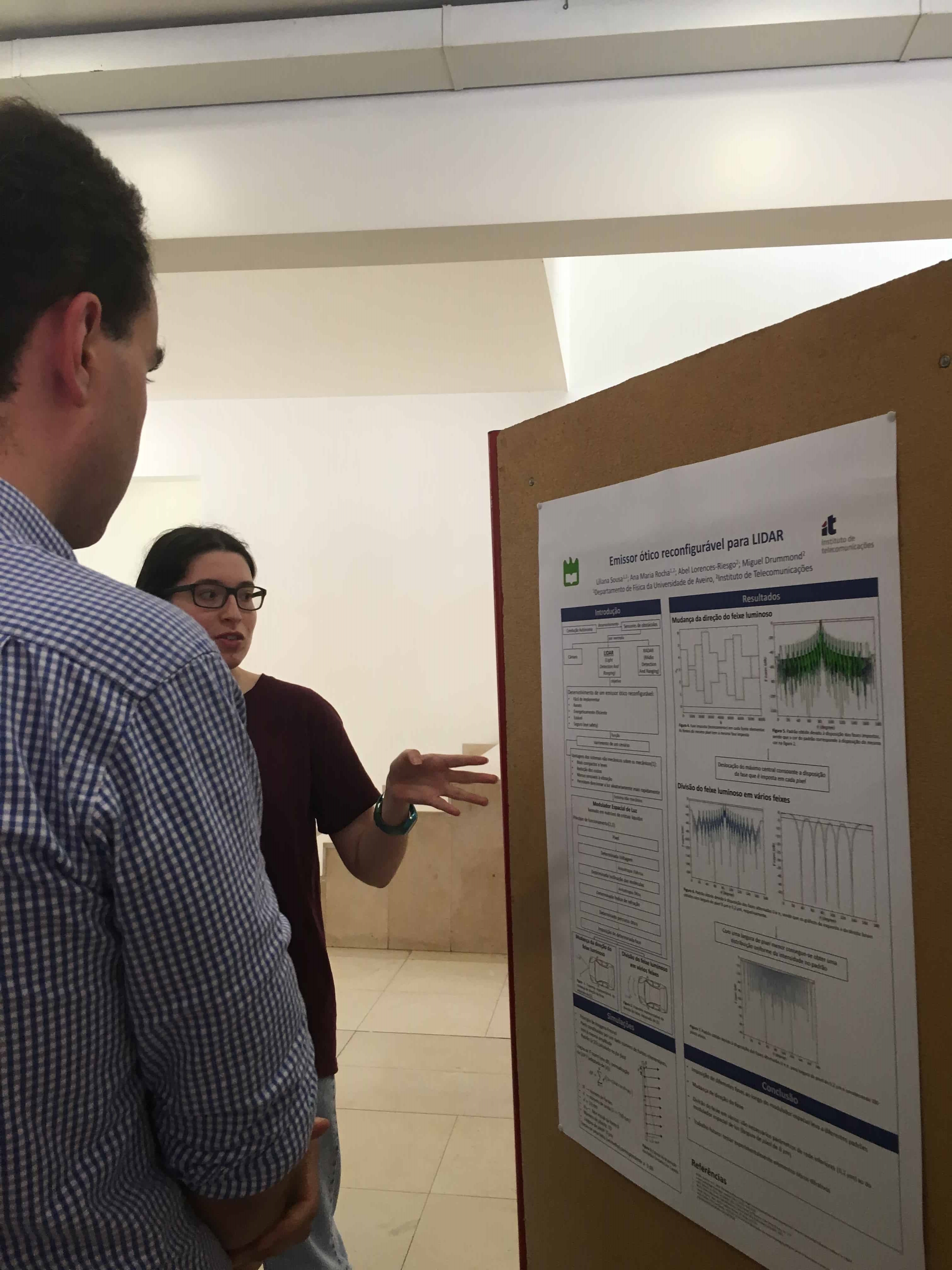
The second prize was given to Bohdan Kulyk, a student on its 1st year of the doctoral program, under the name CVD Graphene for Electrochemical Biosensing: Synthesis, Characterisation and Device Fabrication. The third, and last prize was given to Liliana Sousa, a student doing its master thesis (from which the poster was about) under the portuguese theme Emissor ótico recongurável para Lidar. Being this poster presentation the first experience for most of the students we are glad with the ideas and constructive commentaries of the jury panel. We expect that next year the numbers of students will be larger since their bachelor project and master thesis is already concluded.
